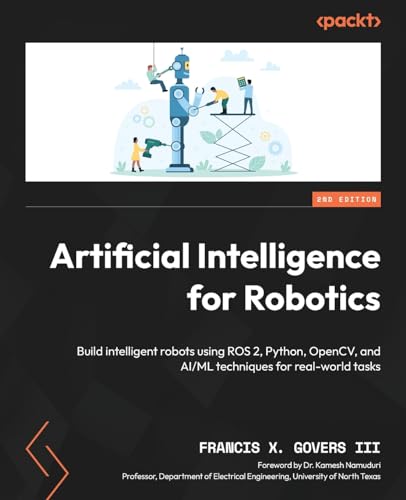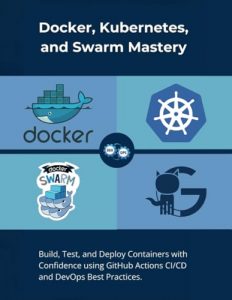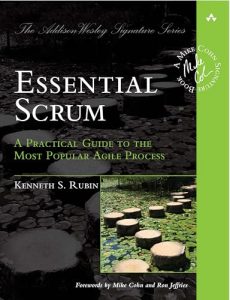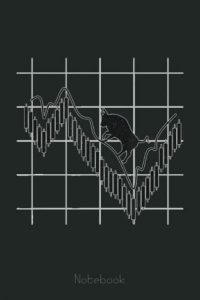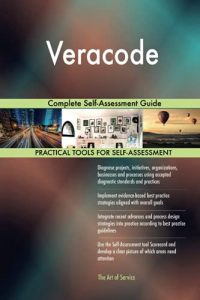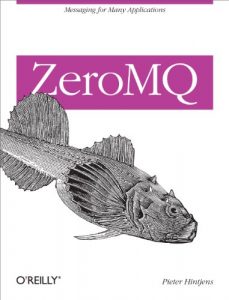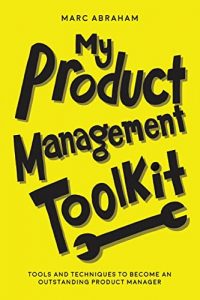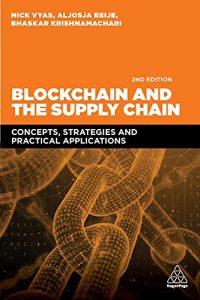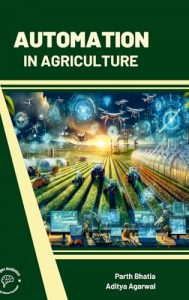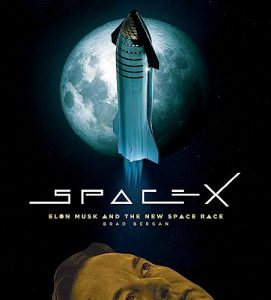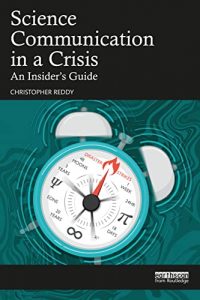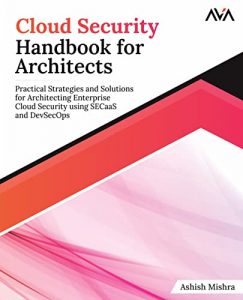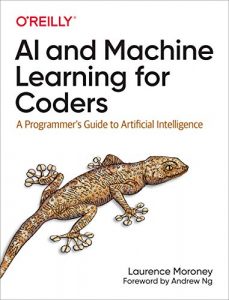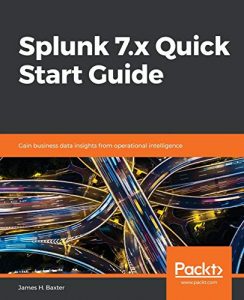1. Artificial Intelligence for Robotics: Build intelligent robots using ROS 2, Python, OpenCV, and AI/ML techniques for real-world tasks
Authored by Francis X. Govers III, this book is a treasure trove for anyone looking to dive deep into the world of robotics. It expertly merges theory with practical applications, guiding readers to construct intelligent robots that operate on real-world tasks using advanced techniques. The integration of ROS 2 with Python and OpenCV provides a robust framework for building and managing robotic systems. This is a must-read for anyone serious about mastering robotics, as it paints a comprehensive picture of modern methodologies. It not only equips you with the knowledge to build your own projects but also helps you grasp the underlying principles of autonomous systems.

2. Qt 5 and OpenCV 4 Computer Vision Projects
Zhuo Qingliang’s book offers an engaging journey through practical projects that utilize Qt 5 and OpenCV 4 for computer vision applications. This guide is perfect for developers eager to understand cross-platform app development and is packed with real-world projects that provide hands-on experience. The clarity of explanations, combined with code snippets and step-by-step tutorials, makes it approachable for readers at various levels. Whether you’re aiming to enhance your skills or start fresh, this book serves as a valuable resource for anyone interested in computer vision applications.

3. Neural Network Computer Vision with OpenCV 5
In this captivating book, Krishna Nuti and Gopi simplify the complexities of computer vision and deep learning using Python and OpenCV’s DNN module. As neural networks play an enormous role in the evolution of AI, this book equips readers with the fundamental principles and practical skills needed to tackle computer vision challenges. The combination of theoretical insights and practical coding exercises makes this book an essential addition to the toolkit of any aspiring computer vision engineer. With a price tag of $32.95, it’s an excellent investment in your education and professional growth.

4. Mastering OpenCV 4
Authored by Roy Shilkrot and David Millan Escriva, this comprehensive guide delves into image processing and application development using OpenCV 4. It discusses advanced techniques for those who already have a foundation in computer vision. This third edition includes the latest enhancements to OpenCV 4, ensuring readers are abreast of cutting-edge developments in the field. What sets this book apart is its focus on real-world scenarios, helping you apply what you learn directly to applications you might encounter in your career. It’s an indispensable read for serious learners in computer vision.

5. Learning Robotics using Python – Second Edition
This enlightening book by Lentin Joseph serves as an excellent introduction to the world of robotics. It guides you through the entire lifecycle of a robot from design, simulation, and programming to prototyping using Python. With the rise of the autonomous mobile robot, understanding how to apply theory effectively is crucial. This second edition addresses all major advancements and is perfect for students and novices seeking a solid foundation in robotics. The hands-on projects included in the book bridge gaps between theory and real-world application effortlessly.

6. Advanced Computer Vision with OpenCV 4
Oketunji Finbarrs presents an extremely affordable yet powerful dive into using OpenCV 4 for advanced computer vision applications. Suitable for both beginners and experienced developers, the book provides practical solutions and covers deep learning concepts as they pertain to computer vision. It’s a compact guide that offers immense value without overwhelming readers with dense text, making it a stellar choice at just $9.99. For anyone looking for a cost-effective way to enhance their knowledge in this thriving field, this book is a perfect option.

7. Learn OpenCV with Python by Exercises
Author Jenna G. Melendez delivers a practical approach to constructing computer vision algorithms using OpenCV and Python. The book is brilliantly structured into exercises that foster an understanding of image processing and machine learning from the ground up. By breaking down complex topics into manageable chunks, it helps reinforce learning and retention. This engaging hands-on approach makes it suitable for readers at the foundational level looking to build competence in the field. A great investment at $9.99 for those wanting a deep dive into OpenCV via practical exercises.

8. Opencv With Python by Example
In his thought-provoking book, Prateek Joshi presents an exemplary compilation of practical examples for using Python with OpenCV. It serves as a great resource for practical learners who thrive on application-based guidance. Joshi’s approach keeps the reader engaged, walking through the fundamentals before advancing to more complex projects. Uncovering the beauty of automation in computer vision through examples allows readers to learn while building, making this book a dynamically engaging read. For only $51.72, this book opens the door to substantial knowledge and skill development.

9. Learn OpenCV 4 by Building Projects
This brilliantly collaborative work by David Millan Escriva, Vinicius G. Mendonca, and Prateek Joshi focuses on the project-based approach to learning OpenCV 4. Each project tackles unique challenges, allowing readers to apply what they learn in real-world contexts. This edition is designed for those who wish to enhance their portfolio through practical applications while gaining a deeper understanding of OpenCV’s capabilities. If you’re a developer interested in building impactful computer vision applications, this book is undoubtedly worth the investment of $46.57.

10. Beginning Robotics with Raspberry Pi and Arduino
Written by Jeff Cicolani, this book introduces readers to the fun and exciting world of robotics utilizing Raspberry Pi and Arduino. This user-friendly guide is perfect for those new to robotics and combines hands-on activities with theoretical insights. It covers the basics of controlling actuators, sensors, and understanding programming in Python alongside OpenCV. The engaging content fosters a creative approach to learning, making it ideal for hobbyists and aspiring bioengineers alike. With a price of $24.87, it’s both accessible and informative.


